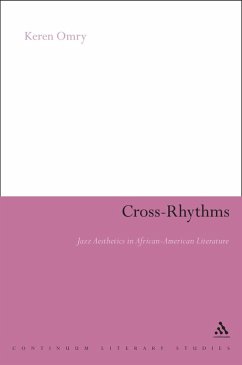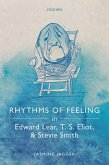Cross-Rhythms investigates the literary uses and effects of blues and jazz in African-American literature of the twentieth century. Texts by James Baldwin, Ralph Ellison, Langston Hughes, Zora Neale Hurston, Gayl Jones, Toni Morrison and Ishmael Reed variously adopt or are consciously informed by a jazz aesthetic; this aesthetic becomes part of a strategy of ethnic identification and provides a medium with which to consider the legacy of trauma in African-American history. These diverse writers are all thoroughly immersed in a socio-cultural context and a literary aesthetic that embodies shifting conceptions of ethnic identity across the twentieth century. The emergence of blues and jazz is, likewise, a crucial product of, as well as catalyst for, this context, and in their own aesthetic explorations of notions of ethnicity these writers consciously engage with this musical milieu.
By examining the highly varied manifestations of a jazz aesthetic as possibly the fundamental common denominator which links these writers, this study attempts to identify an underlying unifying principle. As the different writers write against essentializing or organic categories of race, the very fact of a shared engagement with jazz sensibilities in their work redefines the basis of African-American communal identity.
By examining the highly varied manifestations of a jazz aesthetic as possibly the fundamental common denominator which links these writers, this study attempts to identify an underlying unifying principle. As the different writers write against essentializing or organic categories of race, the very fact of a shared engagement with jazz sensibilities in their work redefines the basis of African-American communal identity.









